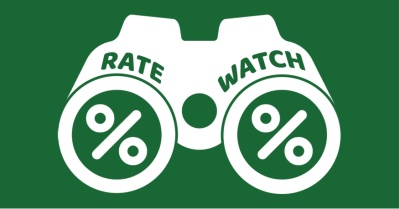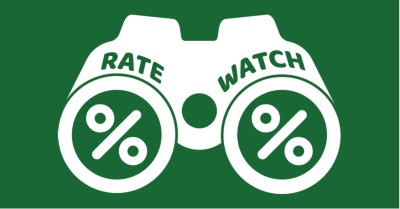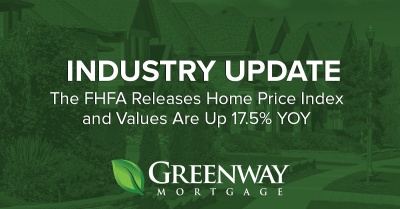What Does The Fed's Rate Hike Mean For Mortgages?

They did it again!
In an effort to quell inflation, the Fed increased policy rates by 0.75% at their most recent meeting. This is the largest increase since 1994 and more than initially expected. Mortgage interest rates had already moved upward in anticipation.
What's next?
It is expected the Fed will continue moving rates on an upward path at each successive meeting of the Open Market Committee, so long as conditions warrant. Most analysts anticipate the increases will continue until the Fed has met its directive of containing inflationary forces in the economy.
Background on the Fed:
- The Federal Reserve Board (the Fed) controls the federal funds rate and discount rate, which are charges for overnight loans from bank to bank or from the Fed to member banks.
- The rate was lowered to near zero in March 2020 in response to the pandemic. These historic measures are now being reversed.
- This is the third increase this year.
What this may mean for you:
If you are planning a home purchase or any type of refinancing, including accessing cash from your home’s equity, it may pay to act before further increases. You may want to explore alternatives, such as a lower rate, hybrid adjustable mortgage (ARM) or home equity line of credit (HELOC).
The Greenway Team monitors interest rates and the markets every day.
Please reach out if I can answer questions or be of service to you or your friends and family. We are happy to help.
Rate Watch | What This Means For Homeowners

If you haven't already heard the news, interest rates are on the rise. The Fed promised, and they delivered in their meeting this week.
The Federal Reserve Meeting
At their most recent meeting, the Fed moved policy rates up by 0.5%, just as they've been saying. Because it was expected, interest rates had moved in advance, including those for home mortgage loans.
What's Next With Rates?
It's expected the Fed will continue moving rates on an upward path at each successive meeting of the Open Market Committee, so long as conditions warrant. Most analysts anticipate the increases will continue until the Fed has met its directive of containing inflationary forces in the economy.
Background On The Fed
-
The Federal Reserve Board (the Fed) controls the federal funds rate and discount rate, which are charges for overnight loans from bank to bank or from the Fed to member banks.
-
The rate was lowered to near zero in March 2020 in response to the pandemic. These historic measures are now being reversed.
-
This is the second increase this year.
What Does This Mean for Homeowners and Homebuyers?
If you are planning a home purchase or any type of refinancing, including accessing cash from your home’s equity, it may pay to act before further increases. You may want to explore alternatives, such as a lower rate, hybrid adjustable mortgage (ARM) or home equity line of credit (HELOC).
The Greenway Team monitors interest rates and the markets every day. Please feel free to reach out to one of our expert Loan Officers if you have any questions! Out team is happy to help.
FHFA Releases Home Price Index and Values are up 17.5% YOY

The Federal Housing Finance Agency released its House Price Index for Q4 of 2021 and home prices were up 17.5% year over year. Your area's details can be found in my Real Estate Appreciation Data Report.
What could this mean for you as a homeowner?
-
You may be able to drop private mortgage insurance and lower your monthly payment
-
Take cash out for home improvements, debt consolidation, tuition payments, or any other purpose
When values are high, a refinance could be worth exploring.
Are you thinking of buying?
High home prices can impact affordability, as can rising interest rates. Fortunately, rates are still below historical norms and prices continue to rise due to low inventory and high demand in most areas.
Reach out to discuss your scenario before rates get any higher!
Mortgage Guideline Update | Documenting Self-employed borrowers

Finally some good news in the mortgage world! 🗞🗞→ Documenting income for self-employed buyers is returning to normal.
What does this mean?
In typical scenarios, borrowers who rely on self-employment income may now submit their most recent federal income tax returns as proof of income, as long as the returns are no earlier than 2020.
How does this help?
Covid-era rules for certain government-backed loans required self-employed borrowers to submit recent P&L statements, asset account statements, and more. It’s much easier for most to supply tax returns instead.
If you know of anyone who delayed a mortgage because of the extra documentation requirements, there’s still time to act while rates remain near historic lows. Please reach out with any questions or to make a referral.
FHFA Increases Fees On Certain High-Balance and Second-Home Loans

The Federal Housing Finance Agency (FHFA) recently announced increases to upfront fees for certain high-balance and second-home loans. These changes are in effect for loans delivered on and after April 1st, but will affect rates well in advance, so if you’ve been thinking of getting a new loan, we recommend you act now.
What are upfront fees?
Upfront fees are premiums added to the cost of a loan to account for higher risk scenarios. Though the name implies they are paid “upfront” when the loan is initiated, they are more typically reflected in the interest rate you pay.
How much will this cost?
The exact amount depends on your loan to value ratio (LTV) – the amount of the loan as a percentage of the property’s value. A higher LTV will incur a higher fee, as it represents a greater risk. The FHFA is imposing fees ranging from 0.25% to 0.75% for high-balance loans and 1.125% to 3.875% for second-home loans. As an approximate example, a fee of 0.75% will often translate to a mortgage rate that’s 0.25% higher.
How do I know if the new fee impacts my purchase or refi?
Generally speaking, the fee structure will apply to all second-home loans (homes not used as a primary residence).
High-balance loans (offered in areas with elevated conforming loan limits) will be impacted unless they are part of certain protected programs, such as HomeReady or Home Possible, or for certain first-time homebuyers in high-cost areas.
The fees apply to loans sold to Fannie Mae or Freddie Mac, which account for the majority of mortgage loans in the U.S. Privately held mortgages will not incur the fees.
Have questions? Please reach out to learn more. We are happy to help!


.png)


.png)
.png)